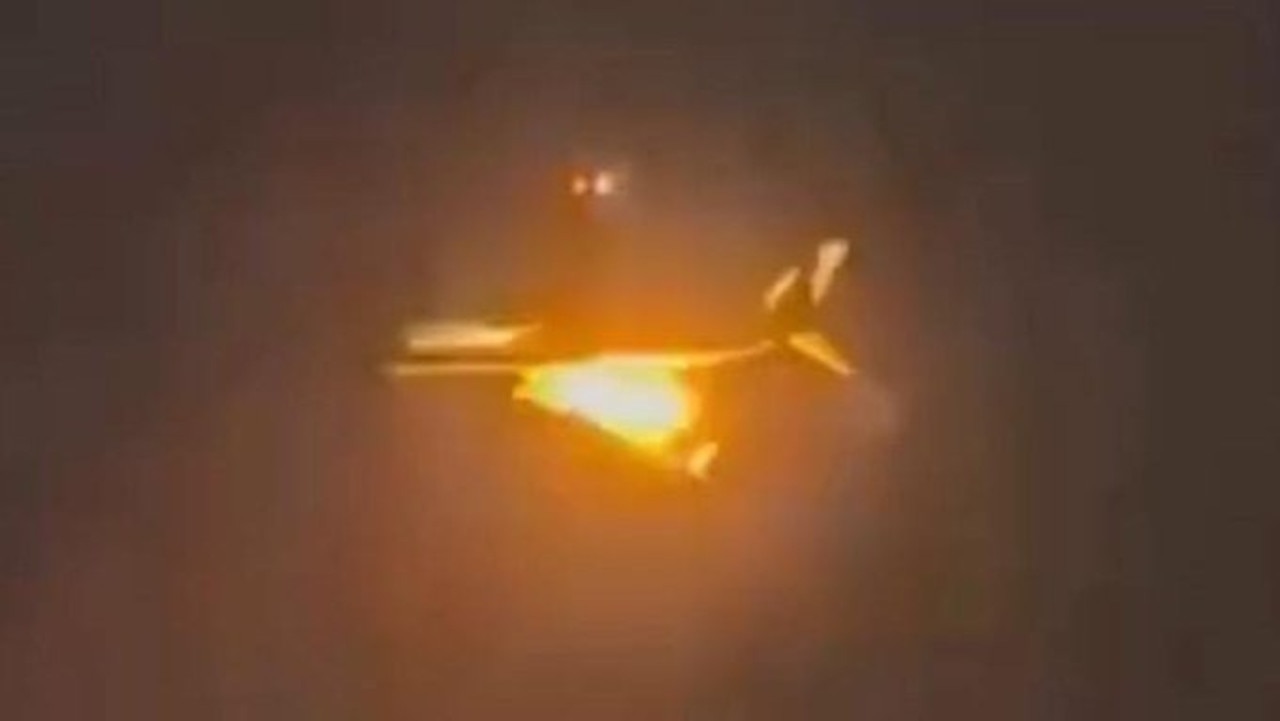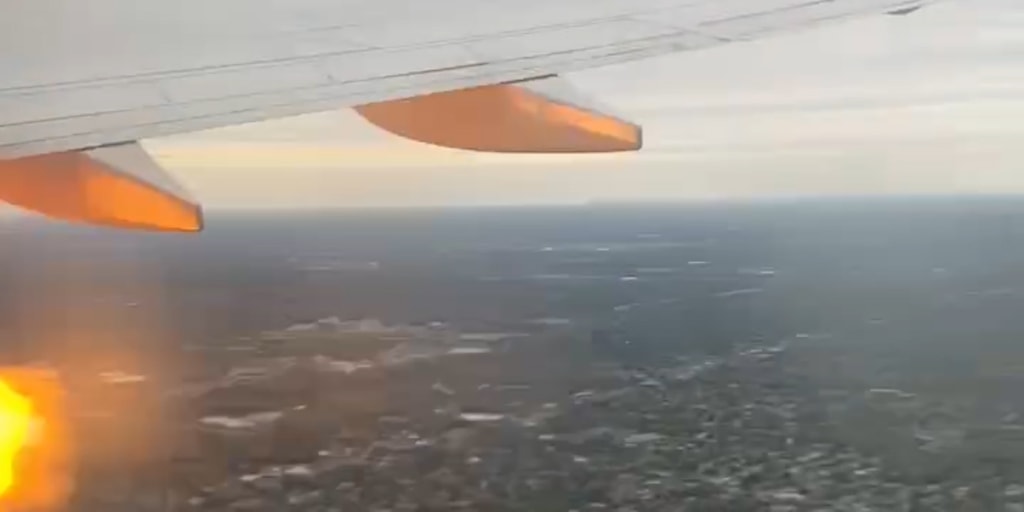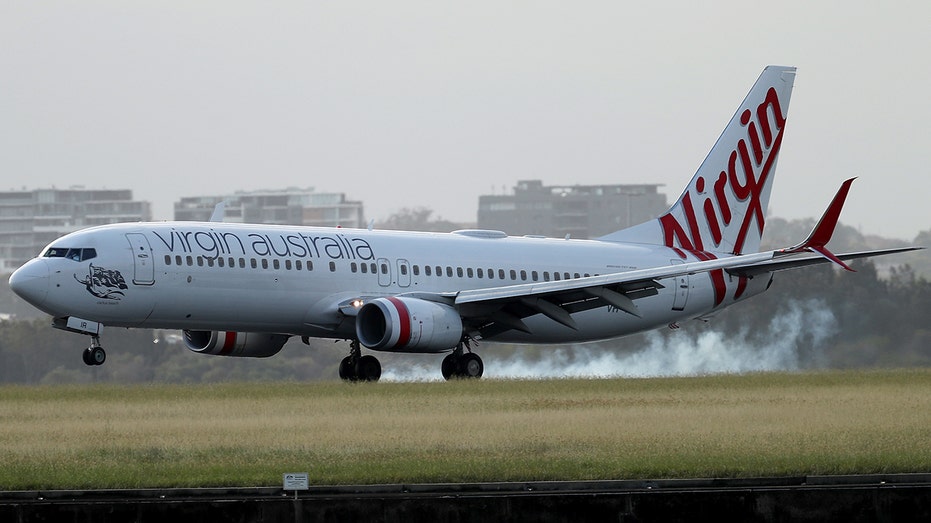
A Virgin Australia passenger plane was forced to make an emergency landing at Invercargill Airport after one of its engines caught fire, possibly due to a bird strike, according to Stuart Aggs, Chief Operations Officer.
"Virgin Australia flight VA148 from Queenstown to Melbourne diverted to Invercargill Airport and landed safely following a possible bird strike on takeoff this evening," said in a statement.
The Boeing 737-800 took off from Queenstown Airport at 5.50 pm local time with 67 passengers and six crew members on board.

Following the incident, the aircraft diverted to Invercargill Airport and landed safely. Emergency services, including New Zealand's fire service, met the plane upon arrival.
Virgin Australia confirmed that all passengers disembarked safely without any injuries reported.
Meanwhile, the airline reassured us that all affected passengers would be accommodated in Invercargill overnight and new flights would be arranged.
Witnesses described hearing a loud bang during the incident, with one passenger said feeling the heat from flames as the plane took off.

"I could feel the flames as we took off. I'm sitting just behind the wing on the right-hand side", the passenger said in a post on X (formerly Twitter).
Hamish Walker recalled hearing a massive bang while cooking dinner.
"I heard this massive bang.. it was the worst noise you ever heard, and you know something is wrong", he said.
Bird strikes are recognized as a serious hazard in aviation, potentially causing significant damage to aircraft and posing risks to passengers and crew.

According to data from a Federal Aviation Administration database, over 2,300 wildlife strikes were reported in 2023. The vast majority of these incidents involved birds.
Aside from the risk of fire, it can affect aircraft in several ways, including damage to engines, wings, noses, and windshields. This can also cause to engine failure and be dangerous during takeoff and landing when the aircraft is at a low altitude and speed.
American Airlines Doubles Down on Premium Offerings to Offset Stormy 2026 Outlook » Probe Into Catastrophic Air India Flight 171 Crash Leans Toward Deliberate Pilot Action Despite New Whistleblower Claims » East Asian Aviation Crisis Deepens as China Suspends 49 Major Air Routes to Japan Amid Diplomatic Tensions »
Comments (0)
Add Your Comment
SHARE
TAGS
NEWS Virgin Australia Boeing New Zaland News passengerplane emergency landing Invercargill Bird strike CrashRECENTLY PUBLISHED
 This Week in Aviation: The 10 Stories That Mattered Most
From major airline developments to aircraft updates and industry shifts, this weekly recap highlights the ten most-read aviation stories from the week of January 25.
INFORMATIONAL
READ MORE »
This Week in Aviation: The 10 Stories That Mattered Most
From major airline developments to aircraft updates and industry shifts, this weekly recap highlights the ten most-read aviation stories from the week of January 25.
INFORMATIONAL
READ MORE »
 Probe Into Catastrophic Air India Flight 171 Crash Leans Toward Deliberate Pilot Action Despite New Whistleblower Claims
In a significant and controversial shift for the global aviation community, investigators probing the June 2025 crash of Air India Flight AI171 are now focusing on deliberate pilot intervention as the primary cause of the disaster.
STORIES
READ MORE »
Probe Into Catastrophic Air India Flight 171 Crash Leans Toward Deliberate Pilot Action Despite New Whistleblower Claims
In a significant and controversial shift for the global aviation community, investigators probing the June 2025 crash of Air India Flight AI171 are now focusing on deliberate pilot intervention as the primary cause of the disaster.
STORIES
READ MORE »
 "Cancel Takeoff Clearance" Southwest Pilots Abort High Speed Takeoff to Avoid San Antonio Runway Collision
Federal authorities have launched a high-priority investigation into a "severe" runway incursion at San Antonio International Airport (SAT) that occurred on the afternoon of January 27, 2026. A Southwest Airlines Boeing 737 MAX 8 (B38M) was forced to perform an emergency high-speed rejected takeoff after a private turboprop mistakenly crossed into its path.
STORIES
READ MORE »
"Cancel Takeoff Clearance" Southwest Pilots Abort High Speed Takeoff to Avoid San Antonio Runway Collision
Federal authorities have launched a high-priority investigation into a "severe" runway incursion at San Antonio International Airport (SAT) that occurred on the afternoon of January 27, 2026. A Southwest Airlines Boeing 737 MAX 8 (B38M) was forced to perform an emergency high-speed rejected takeoff after a private turboprop mistakenly crossed into its path.
STORIES
READ MORE »



